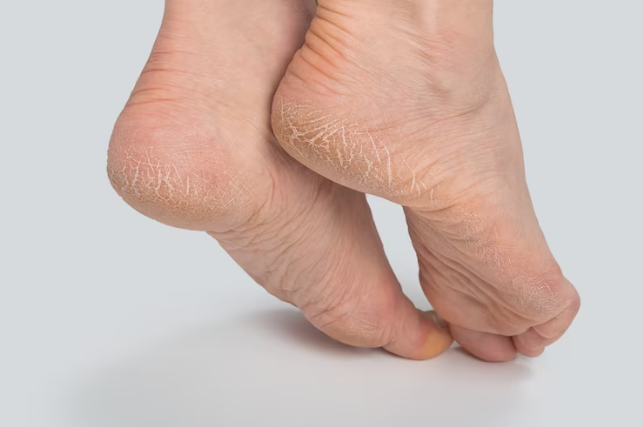
Effective Treatment For Cracked Heels in Winter
Cracked heels, also known as heel fissures, can be a common and uncomfortable foot condition that affects many individuals. These cracks occur when the skin on the heels becomes dry, thickened, and lacks proper moisture, leading to painful and unsightly fissures. Fortunately, with the right treatment and care, you can restore the health and softness of your heels. In this article, we will explore a comprehensive guide to treating cracked heels, encompassing preventive measures, home remedies, and professional interventions.
Understanding the Causes of Cracked Heels
Cracked heels can result from various factors, including:
- Lack of moisture: Insufficient hydration can lead to dry and thickened skin.
- Prolonged standing or walking: Continuous pressure on the heels can cause the skin to crack.
- Harsh climates: Exposure to dry air, cold weather, or excessive heat can contribute to heel dryness.
- Improper footwear: Wearing open-back or ill-fitting shoes can lead to friction and pressure on the heels.
- Medical conditions: Certain conditions like diabetes, eczema, and thyroid disorders can affect skin health and contribute to cracked heels.
Preventive Measures
Prevention is key to maintaining healthy heels and avoiding the development of cracks. Implement the following practices:
- Keep feet clean and dry: Wash your feet daily and thoroughly dry them, paying special attention to the heel area.
- Moisturize regularly: Apply a moisturizing cream or lotion to your heels daily, preferably after bathing or showering.
- Wear comfortable footwear: Opt for well-fitting shoes that provide proper support and cushioning.
- Use heel cups or inserts: These can help reduce pressure on the heels and provide extra support.
- Avoid prolonged standing or walking: If possible, take breaks and elevate your feet to reduce strain on the heels.
- Stay hydrated: Drink an adequate amount of water daily to keep your skin hydrated from within.
Home Remedies and Self-Care: If you notice the onset of cracked heels, there are several effective home remedies and self-care practices you can try:
- Soak your feet: Soaking your feet in warm water for 10-15 minutes can soften the skin and prepare it for exfoliation.
- Exfoliate: Use a pumice stone or a foot file to gently remove the dead and hardened skin on the heels.
- Moisturize intensively: Apply a thick layer of moisturizing cream or petroleum jelly to your heels and wear clean cotton socks overnight to lock in moisture.
- Use natural remedies: Remedies such as coconut oil, olive oil, shea butter, and aloe vera gel can provide deep hydration and promote healing.
- Avoid harsh chemicals: Refrain from using harsh soaps or exfoliants that can further dry out or irritate the skin.
- Maintain good foot hygiene: Regularly trim your nails, keep them clean, and avoid picking or scratching the cracks to prevent infection.
Professional Interventions: In severe cases or if home remedies do not yield satisfactory results, professional interventions may be necessary:
- Consult a podiatrist: A foot specialist can evaluate your condition and recommend appropriate treatments or prescribe medicated creams or ointments.
- Medical procedures: In extreme cases, medical procedures such as debridement (removal of dead skin), chemical peels, or laser therapy may be recommended.
- Address underlying medical conditions: If your cracked heels are a result of an underlying medical condition, it is crucial to manage and treat that condition to improve skin health.
Cracked heels can be uncomfortable and aesthetically displeasing, but with proper care and treatment, you can restore the health and softness of your feet. By following preventive measures, incorporating home remedies and self-care practices, and seeking professional assistance when necessary, you can effectively treat cracked heels and enjoy healthy, pain-free feet. Remember to be consistent, patient, and attentive to your foot care routine to maintain smooth and supple heels.


